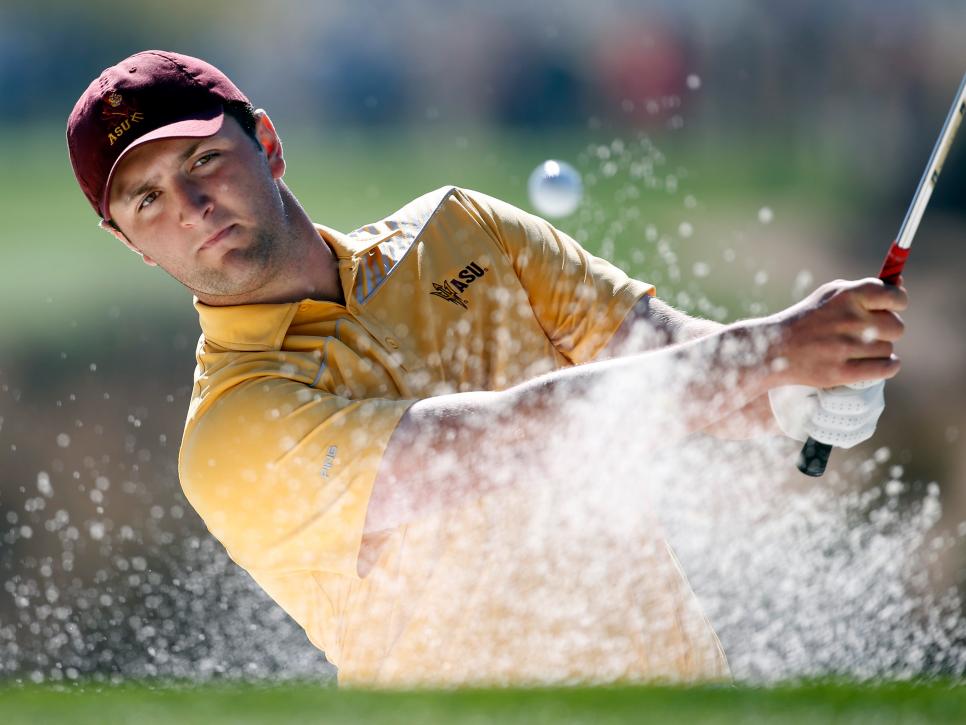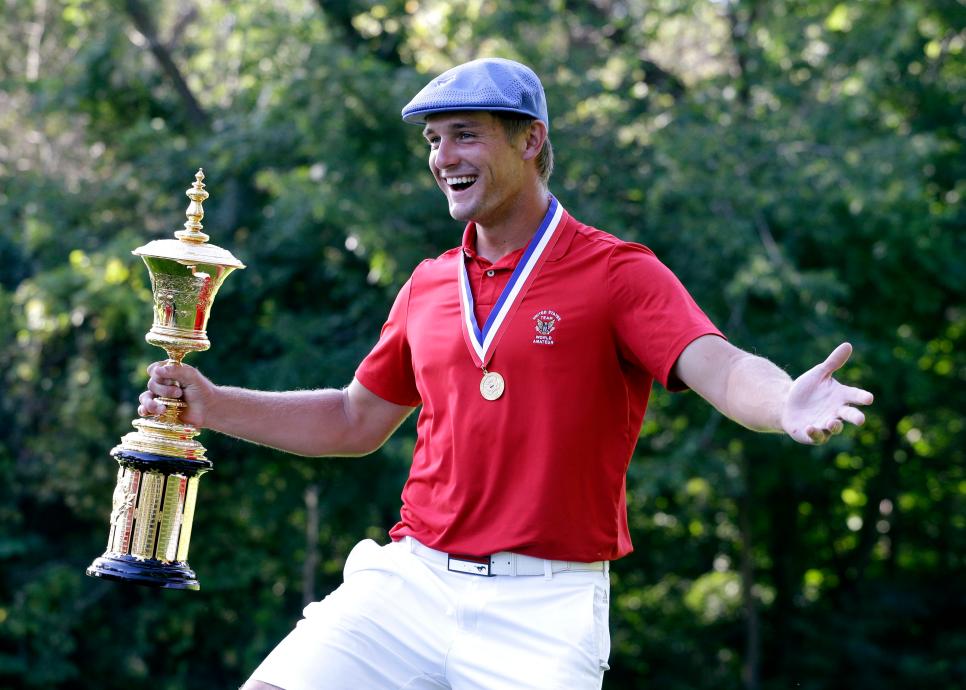The Loop
Jon Rahm is the No. 1 ranked men's amateur in the world. But should he be?

Rick Scuteri / AP
Jon Rahm will be getting a lot of congratulatory emails and texts today after being named winner of the Mark McCormack Medal for being the top player on the World Amateur Golf Ranking (WAGR) at the end of the summer. The 20-year-old Spaniard, who'll be a senior at Arizona State this fall, has a spot reserved at the U.S. and British Opens next summer as his reward (so long as he remains an amateur for the events) after a year in which he claimed first-team All-American honors in college, had a top-five at a PGA Tour event
No doubt he's a deserving winner. But there are some^ who are likely to ask if he is the most deserving player?
^ By "some" I mean no fewer than a couple guys in our office who just watched Bryson DeChambeau win the U.S. Amateur in dominating fashion after also having won the NCAA title earlier this summer.
Indeed, DeChambeau became just the fifth golfer to win these two events in the same calendar year, not to mention that he qualified for the U.S. Open and made the cut at the FedEx St. Jude Classic. How is that not worthy of claiming the No. 1^ ranking?
^ Or the No. 2 ranking? In fact, DeChambeau's U.S. Amateur win only lifted him up to No. 5 in the final ranking of the summer. In contrast, the victory vaulted DeChambeau to No. 1 in a rival amateur ranking list, the Scratch Players World Amateur Ranking.
Moreover, what about Stanford's Maverick McNealy, who is coming off one of the more impressive college seasons in recent memory and was the NCAA player of the year? How is he only No. 2 in the final WAGR?
Rahm's case is bolstered in great part by his impressive performance at the Waste Management Phoenix Open, in which he finished three strokes back of eventual winner Brooks Koepka. His performance earned him 30.25 points towards his World Amateur Golf Ranking points average total. In contrast DeChambeau's victory at the NCAAs earned him 22 points and his U.S. Amateur triumph grabbed him 19.875 points.

Nam Y. Huh / AP
Rahm also had an extremely impressive 2014-15 college season, where he won four times, had eight top-fives, had a 69.15 average and finished no worse than T-22 in 13 starts. It's the kind of season that in almost any other year would have made him the consensus college player of the year. Except that McNealy, his Pac-12 rival, had six wins, nine top-fives and a 69.05 average.

Dom Furore
DeChambeau, meanwhile, came up big in the two biggest amateur events of the year, but his college numbers, while impressive, trailed Rahm and McNealy. DeChambeau only had two wins (including the NCAAs), six top-fives and a 70.61.
The X factor that also helps Rahm is his performance at the 2014 World Amateur Team Championship, where he finished first individually (outpacing DeChambeau, who was T-8, by nine strokes, while McNealy did not compete in the event).
Arguably the biggest criticism of the WAGR points criteria is the seeming woeful number of points awarded DeChambeau for winning the U.S. Amateur, which many believe has the best field of any amateur tournament in the world.
What it comes down to, however, is what do you value more -- victories in the biggest amateur events (a vote for DeChambeau), consistently impressive performances in top-tier amateur events (a vote for McNealy) or consistently impressive performances in top-tier amateur events, plus one truly stellar showing in a pro tournament (a vote for Rahm).
Suffice it to say, we know which way the WAGR voted.

